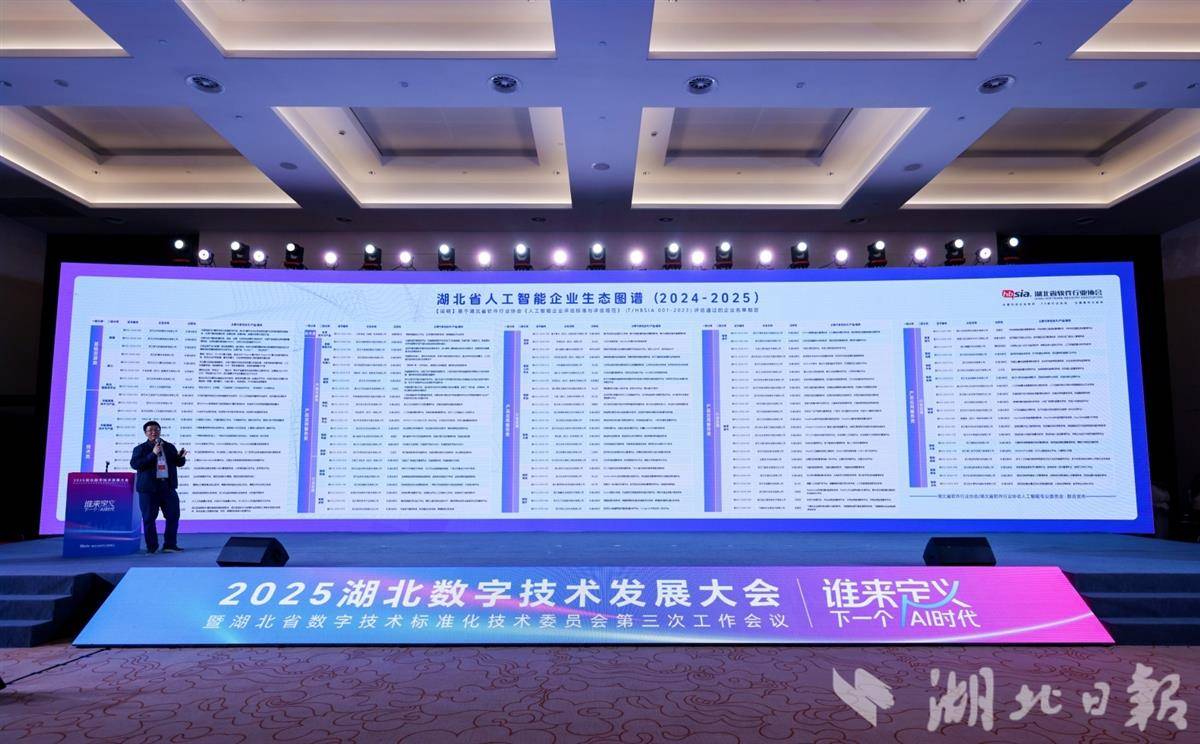On the afternoon of October 21, the 2025 Hubei Digital Technology Development Conference was held in Wuhan. According to information revealed at the conference, Hubei province has conducted artificial intelligence enterprise evaluations based on relevant standards and specifications. The first batch of 106 enterprises that passed the evaluation demonstrated significant characteristics including high R&D investment intensity, active application ecosystems, and solid talent reserves.
The evaluation report systematically revealed the ecological structure of Hubei’s AI industry for the first time. Among the enterprises that passed evaluation, product application service enterprises accounted for 78.3%, forming the absolute main body of the industry; technology and basic resource enterprises accounted for 14.15% and 7.55% respectively. This shows that Hubei’s AI industry has deeply integrated into specific scenarios, with application implementation becoming the core driving force.
In the foundational layer of the industry, enterprises in the computing power field accounted for 50%, becoming the development focus. Wuhan Artificial Intelligence Computing Center and Wuhan Supercomputing Center connected to the “China Computing Power Network,” providing crucial public computing power support for the region. Data service and algorithm framework enterprises accounted for 37.5% and 12.5% respectively, together building the capability triangle of the foundational layer.
Participating enterprises showed outstanding performance in R&D investment. Data shows that enterprises’ total R&D expenses averaged 31.62% of their budget, with 78.57% of that allocated specifically to artificial intelligence direction, highlighting the core technology-driven strategy.
Talent forms the foundation of R&D investment. Evaluation enterprises had an average of 195 employees, with R&D personnel accounting for 76.18%. Among R&D teams, high-level talent averaged 29.9%, indicating that core R&D capabilities are supported by senior experts and key personnel.
In terms of innovation achievements, enterprises averaged 10.87 authorized patents in the artificial intelligence field over the past three years, with an average of 19.37 registered software copyrights. Additionally, 55.66% of enterprises engaged in industry-university-research cooperation, while 40.57% participated in standard formulation, demonstrating an open and collaborative innovation approach.
In the artificial intelligence technology layer, support technology and product enterprises accounted for 60%, becoming the main force. These enterprises are committed to building open platforms and lowering technical usage barriers. Key general technology and key domain technology enterprises each accounted for 20%, showing that while technology deeply integrates with industries, it also exhibits cross-innovation trends.
In the application layer, enterprises focusing on industry applications accounted for 84.34%. AI technology is shifting from general services to providing customized solutions for specific industries, covering manufacturing, healthcare, finance and other fields, promoting industrial intelligentization.
The evaluation report pointed out that while Hubei’s artificial intelligence industry is developing rapidly, continuous efforts are still needed in areas such as breaking through key core technologies, strengthening industrial chain coordination, and improving data security and privacy protection systems.





